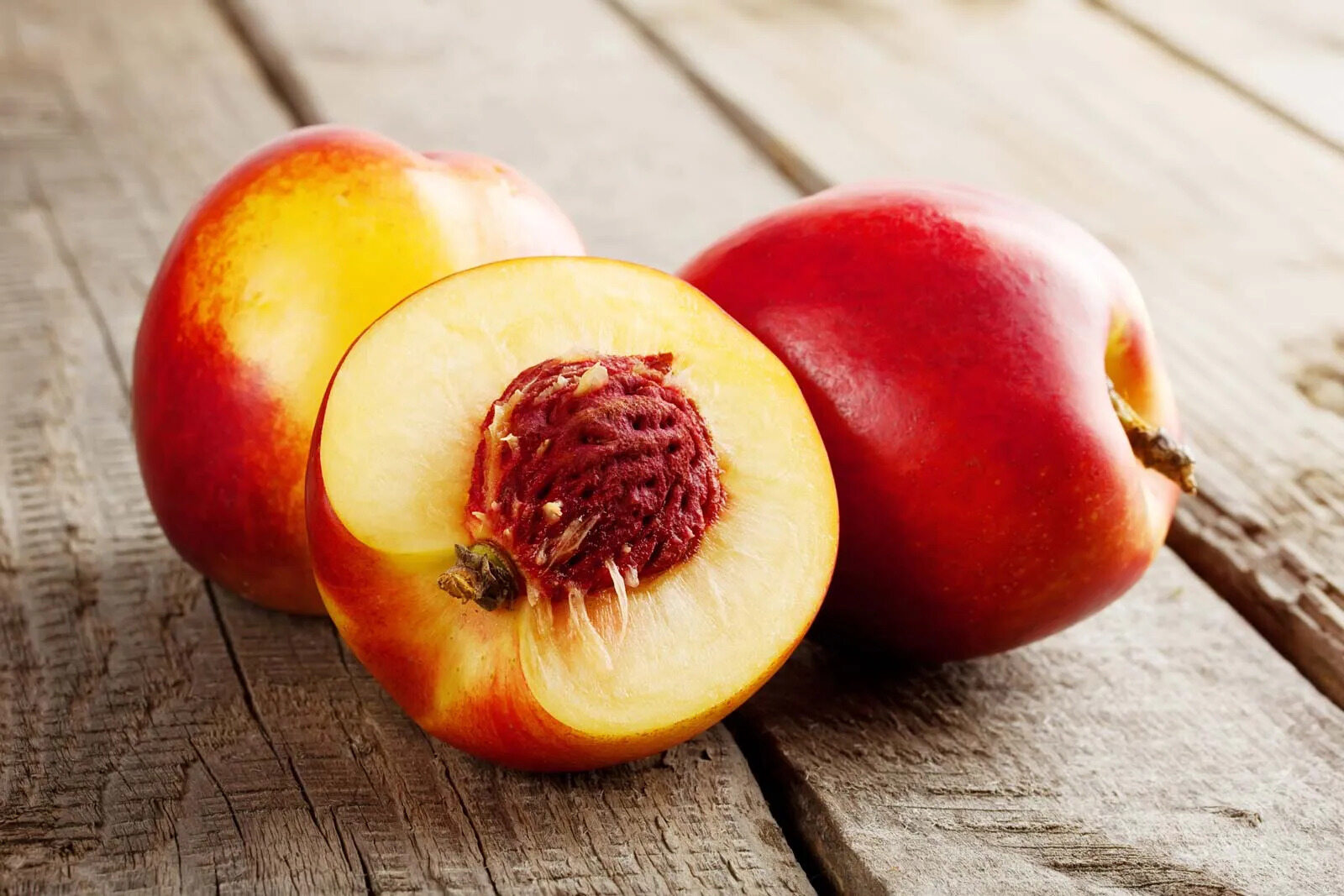
Nectarines are more than just smooth-skinned peaches. These juicy fruits pack a punch of flavor and nutrition, making them a favorite in many households. But did you know that nectarines are actually a type of peach? Yes, nectarines and peaches belong to the same species, Prunus persica. The difference lies in a single gene that gives nectarines their smooth skin. Nectarines are rich in vitamins A and C, fiber, and antioxidants, which help boost your immune system and improve skin health. Whether you enjoy them fresh, baked, or in a smoothie, nectarines offer a delicious way to stay healthy. Ready to learn more? Here are 28 fascinating facts about nectarines that will make you appreciate this fruit even more!
Key Takeaways:
- Nectarines are a close relative of peaches, with smooth skin and a sweet taste. They are packed with vitamins, low in calories, and can be grown in warm climates. They make a delicious addition to fruit salads and can even be used in baking.
- Nectarines offer numerous health benefits, including antioxidants for fighting free radicals, vitamin A for eye health, and anti-inflammatory properties. They are also great for maintaining healthy skin and can help regulate blood pressure.
What is a Nectarine?
Nectarines are a type of stone fruit closely related to peaches. They have smooth skin, unlike the fuzzy exterior of peaches. Here are some fascinating facts about nectarines that might surprise you.
-
Nectarines and peaches are almost genetically identical, differing by just one gene that makes nectarines smooth-skinned.
-
The word "nectarine" comes from "nectar," referring to the sweet taste of the fruit.
-
Nectarines can be either clingstone or freestone, depending on whether the flesh sticks to the pit.
-
They are believed to have originated in China over 2,000 years ago.
Nutritional Benefits of Nectarines
Nectarines are not just delicious; they are also packed with nutrients. Here’s what makes them a healthy choice.
-
A medium-sized nectarine has about 60 calories, making it a low-calorie snack.
-
They are rich in vitamins A and C, which are essential for skin health and immune function.
-
Nectarines contain dietary fiber, aiding in digestion and promoting gut health.
-
They are a good source of potassium, which helps regulate blood pressure.
Growing Nectarines
Growing nectarines can be a rewarding experience. Here are some interesting facts about how they are cultivated.
-
Nectarine trees thrive in warm climates and need plenty of sunlight.
-
They require well-drained soil and regular watering to produce juicy fruits.
-
These trees are typically pruned in late winter to encourage new growth.
-
Nectarines are susceptible to pests like aphids and diseases such as peach leaf curl.
Varieties of Nectarines
There are several varieties of nectarines, each with unique characteristics. Let’s explore some of them.
-
Yellow-fleshed nectarines are the most common variety, known for their tangy flavor.
-
White-fleshed nectarines are sweeter and less acidic compared to their yellow counterparts.
-
Some popular varieties include 'Fantasia,' 'Flavortop,' and 'Redgold.'
-
Dwarf nectarine trees are perfect for small gardens and can even be grown in containers.
Culinary Uses of Nectarines
Nectarines are versatile and can be used in various culinary applications. Here are some ways to enjoy them.
-
They can be eaten fresh, straight off the tree.
-
Nectarines make a great addition to fruit salads, adding a burst of flavor.
-
They can be grilled and served with meats or as a dessert with a scoop of ice cream.
-
Nectarines can be used in baking, such as in pies, tarts, and cobblers.
Fun Facts About Nectarines
Here are some quirky and fun facts about nectarines that you might not know.
-
Nectarines are often mistaken for peaches, but their smooth skin sets them apart.
-
They can be used to make nectarine jam, which is a delicious spread for toast.
-
In Chinese culture, nectarines are considered a symbol of immortality.
-
The United States is one of the largest producers of nectarines, particularly in California.
Health Benefits of Eating Nectarines
Eating nectarines can offer several health benefits. Here’s why you should consider adding them to your diet.
-
They are high in antioxidants, which help fight free radicals in the body.
-
Nectarines can help improve eye health due to their high vitamin A content.
-
They have anti-inflammatory properties, which can help reduce the risk of chronic diseases.
-
Eating nectarines can help maintain healthy skin, thanks to their vitamin C content.
Nectarines: A Juicy Delight
Nectarines pack a punch with their sweet, tangy flavor and impressive health benefits. Loaded with vitamins A and C, they boost your immune system and keep your skin glowing. Their fiber content aids digestion, while antioxidants help fight off free radicals. Whether you enjoy them fresh, grilled, or in a dessert, nectarines are versatile and delicious.
These stone fruits are also low in calories, making them a guilt-free snack. They can be a great addition to salads, smoothies, or even savory dishes. Plus, their natural sugars provide a quick energy boost without the crash.
Next time you're at the grocery store, grab a few nectarines. They're not just tasty; they're a smart choice for your health. Enjoy the burst of flavor and the benefits that come with every bite.
Frequently Asked Questions
Was this page helpful?
Our commitment to delivering trustworthy and engaging content is at the heart of what we do. Each fact on our site is contributed by real users like you, bringing a wealth of diverse insights and information. To ensure the highest standards of accuracy and reliability, our dedicated editors meticulously review each submission. This process guarantees that the facts we share are not only fascinating but also credible. Trust in our commitment to quality and authenticity as you explore and learn with us.
